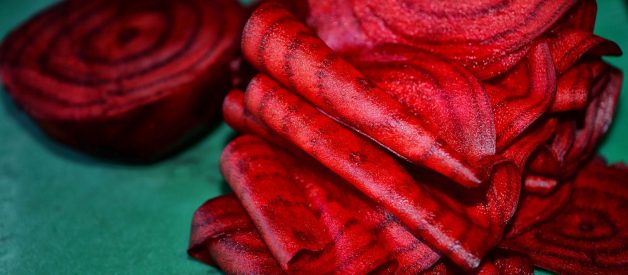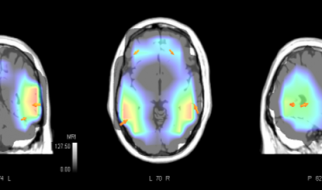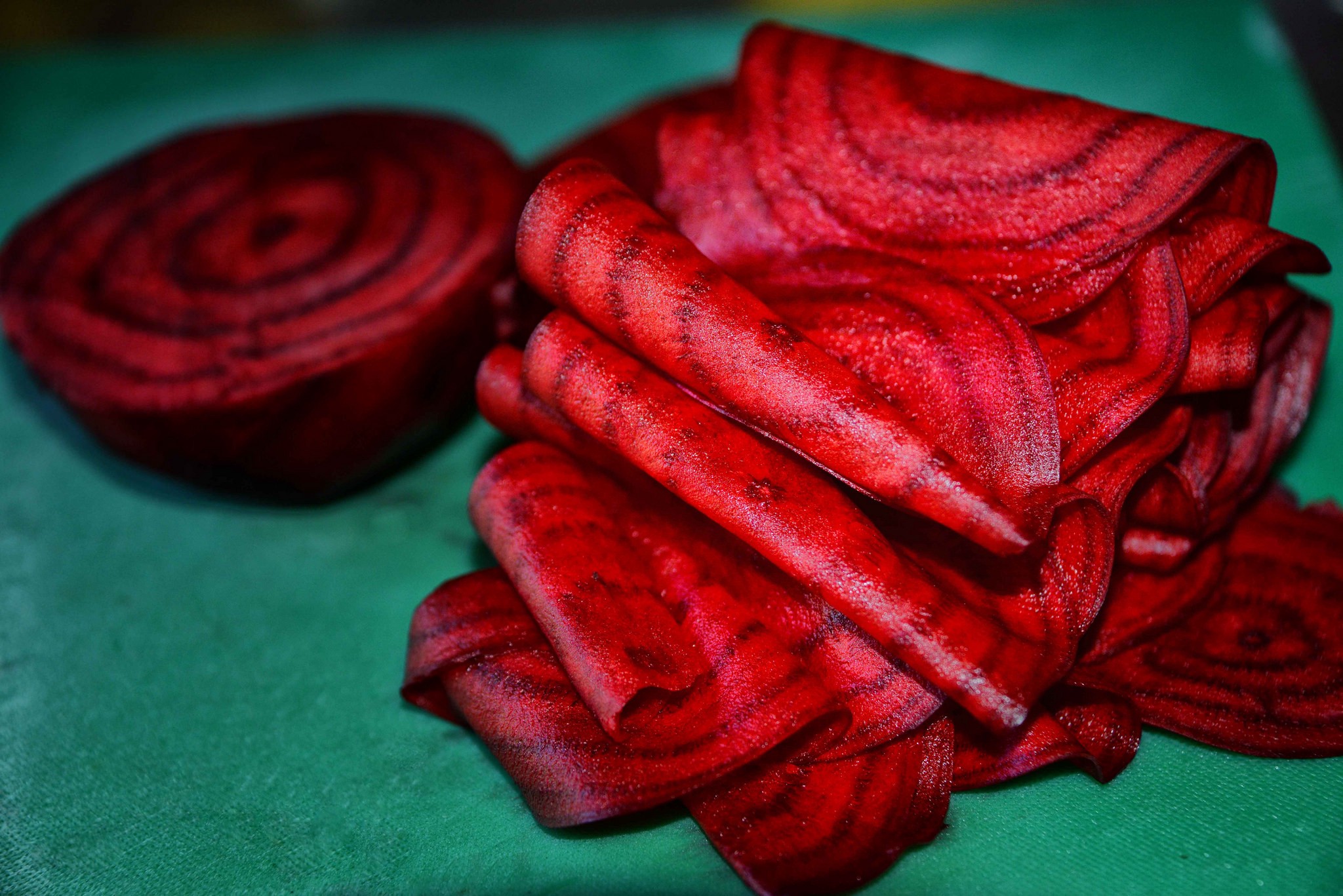
How familiar are you with beetroot (beta vulgaris rubra)?
The little known purple colored vegetable, also known simply as ?beets,? are packed full of more goodness than you probably realize.
If you?re looking for a new superfood to start including in your diet, either to help you lose weight or just improve your overall health, beetroot may be the answer!
What exactly are the health benefits and side effects of beetroot?
If you haven?t already studied the food, you?ll likely be quite surprised by all this little plant can do.
What are Beets?
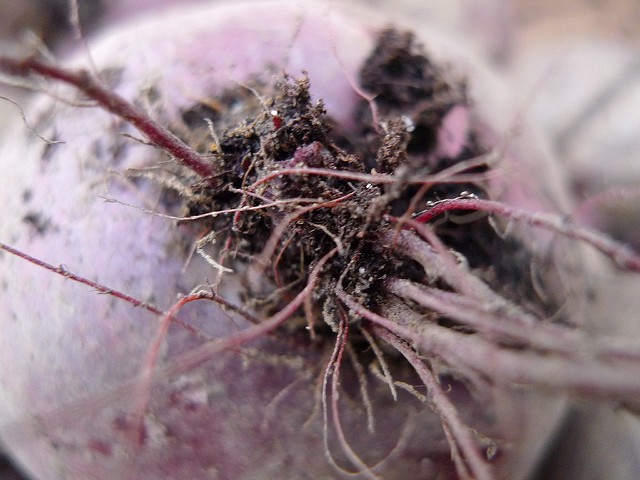
First thing first, what are beets?
As you might have guessed from the name, beetroot, beets are the root of the plant. More specifically, beetroot is the taproot (or, central dominant root) of the beet plant.
Beets have been used for food and other purposes for many years.
In fact, in the middle ages, beetroot was used to help treat illnesses relating to digestion and blood problems. And, in the middle of the 19th century, the plant was even used to color wine!
The leaves growing at the top of the plant can be eaten as well, but in this article, we?ll be focusing on what the root specifically does for people?s health.
But if you wanted to, how do you know how to eat beets leaves?
It?s simple!
You can add the younger leaves to raw salads, while more mature leaves are best either boiled or steamed. The leaves taste similar to spinach leaves, so if you?re a fan of spinach, definitely try beet leaves!
But, back to beetroot, what exactly are the nutrients in the plant and what vitamins are in beets?
Nutrients and Vitamins in Beets
Beetroot has several different benefits to it. In fact, the root has many different nutrients packed into its small frame!
The three nutrients it has the highest amounts of are folate, magnesium, and nitrate.
Are you not familiar with what these nutrients do?
No worries, we?ve got you covered!
Read on to discover specifically what beets can give you specifically through their supply of folate, magnesium, and nitrate.
Folate gives you many incredible benefits
This nutrient plays one particularly important role in how it encourages cell and tissue growth.
In fact, folate is especially important for pregnant women to take since a lack of folate can lead to serious health issues and possible death for their unborn baby.
For example, one study showed that an increase of 5 mg folic acid intake per day would reduce the risk of NTDs (Neural tube defects) by nearly 85%.
In fact, as you can see in the chart below, after the mandatory implementation of folic acid in the USA in 1998, the prevalence of NTDs among pregnant women was significantly reduced.
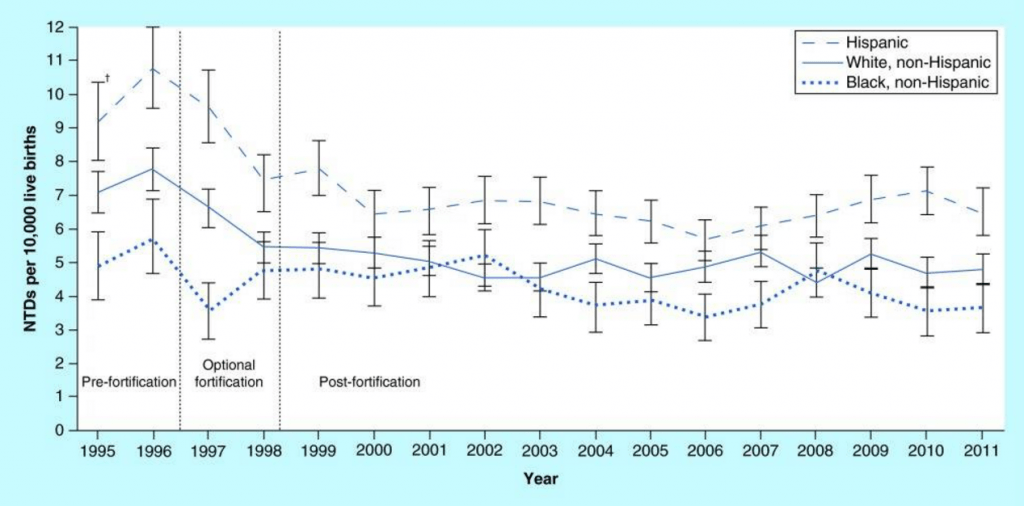
Also, if a couple is trying to get pregnant, folate can potentially help the couple get pregnant more easily by increasing sperm viability. Beets pregnancy benefits are big!
Folate also increases cardiovascular health and reduces the risk of strokes.
We won?t go into the details of exactly how that works in this article (it gets technical!) but you could easily find the information by googling it if you?d like to read further on the topic.
Folate is also good for improving your neural and psycho-emotional health. Studies showed that 0.8mg folic acid intake per day will decrease depression.
When you provide your body with all the folate it needs, your body will work much better for you!
Benefits of Magnesium
Moving on to magnesium, this nutrient is quite similar to folate in that it gives a lot of benefits to those who ingest enough of it.
Magnesium (Mg2+) is one of the most abundant and essential ions in the human body.
In fact, it is involved 600+ enzyme reactions in the body.
Magnesium can help your body convert food into energy.
It also assists in the process of creating new proteins from amino acids, as well as helps create and repair DNA and RNA.
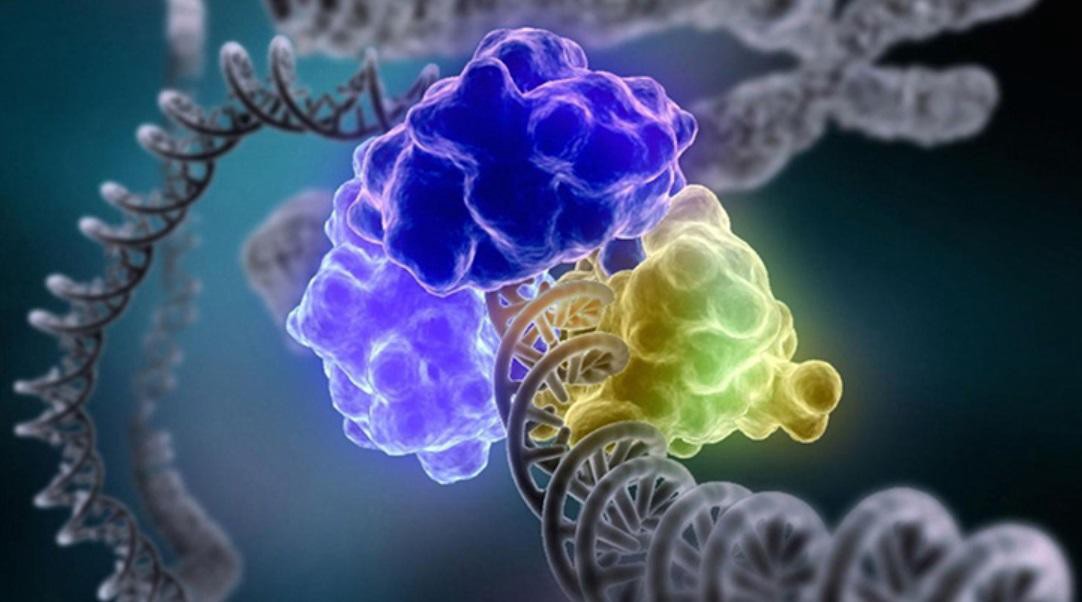
It is also part of the contraction and relaxation of muscles and helps regulate neurotransmitters.
Moreover, Magnesium deficiency causes several neuromuscular and psychiatric symptoms, including a variety of depression types.
You can find more detailed evidence-based information about the health benefits of Magnesium here.
There are a significant number of people who are Magnesium deficient. The reason for this issue is two-fold:
Mg2+ content in fruit and vegetables decreased by 20?30% over the last 60 years.
80?90% of Mg2+ is lost during food processing
Needless to say, you need to be sure you?re getting sufficient amounts of magnesium!
Eating beets is a great way to get more of this essential ion Magnesium into your body.
By the way, one Beetroot contains 18.9 mg Magnesium.
Benefits of Nitrate
Beets, specifically the beet greens, are one of the most nitrate-rich food.
Take a look at the chart below?
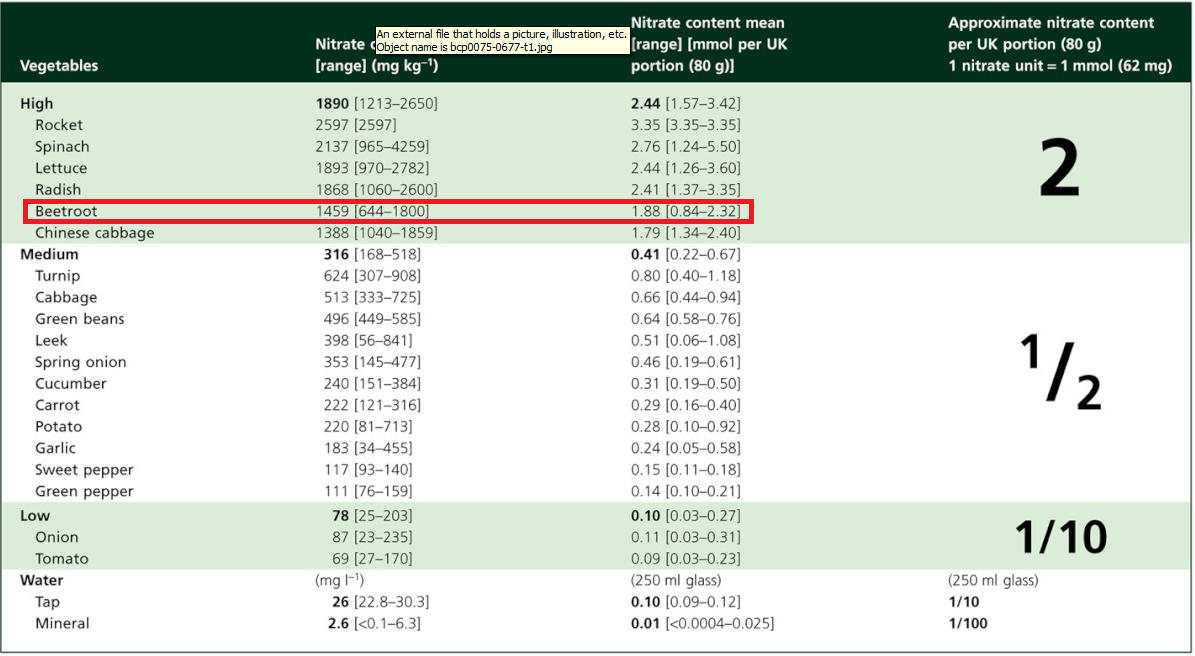
As a source of nitrate, beetroot has a positive impact on cardiovascular health and cognitive functions.
In fact, nitrate itself does not have any specific physiological function; rather, nitric oxide (NO) is considered to mediate beneficial effects. The nitrate is reduced to the nitric oxide in the body.
So, how does NO affect the cardiovascular system and cognitive functions in a positive manner?
The decrease in NO, as frequently seen with aging, causes endothelial dysfunction.
Endothelial dysfunction is the #1 cause of cardiovascular disorders (hypertension, atherosclerosis, etc.).
Therefore, as a natural source of nitrate, beetroot has a very important role in preventing the cardiovascular diseases.
What about the cognitive function of the brain?
The primary reason for the reduction in cognitive function with aging is the reduced cerebral blood flow.
In fact, studies are demonstrating that reduction in cerebral blood flow can lead to brain damage, clinical dementia, and Alzheimer?s disease.
One of the most important reasons for cerebral hypoperfusion is a damage in neurovascular function which is attributed to impaired NO activity.
Therefore, as a natural donor of NO, beetroot has the ability to improve cerebral blood flow and prevent the cognitive dysfunction.
Beets and Weight Loss
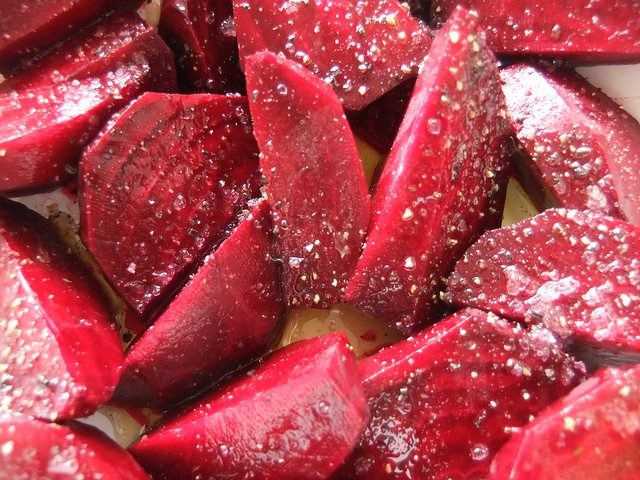
Another reason people eat beets has to do with weight loss.
How do beets affect weight?
People looking to lose weight are often willing to try just about anything.
Is beetroot actually helpful in the process of losing a few pounds?
Actually, yes!
Believe it or not, beets are supportive in the process of losing weight in several different ways.
First of all, beets are helpful in this way because they have a very high amount of fiber packed into their little bodies. Lots of fiber in a person?s diet helps prevent constipation from happening and helps the person have a healthy digestive tract. Making sure a person is not constipated is one way to make sure they aren?t holding onto extra weight.
One question some people have is, does eating beets cause red stools?
The thought of that happening might sound like a silly rumor started by someone who never eats beets. The surprising truth though is that it is, in fact, true! Since your stools are made from what you consume, eating beets can cause your stool to be red. So if that happens, don?t be alarmed!
Beets are also helpful in the weight loss process by helping improve muscle oxygenation (the addition of oxygen) during exercise thanks to its nitrate content. This can make it possible for you to exercise for longer periods of time without having to stop to catch your breath as often. In this case, you need to be eating beets along with exercising rather than just eating beets to lose weight.
One final way beets can help you lose weight is how they contain a nutrient called choline.
Choline does many things, including helping in the absorption of fat and reducing chronic inflammation.
Also, beets have a low-calorie count of only 58 calories in one cup of raw beetroot.
Additional Benefits of Beetroot
We?ve already discovered enough about beetroot to warrant going out and buying some, but the benefits don?t stop there!
In fact, if you?re looking for ways to help your skin grow in health and improve in appearance, beets can be a help to you in that area as well.
The folate we already mentioned takes a big role in helping you out! It can help in preventing wrinkles and fighting other skin conditions.
Additionally, the fiber in the root that helps improve your digestion will also help your skin improve by flushing toxins out of your entire body.
Beetroot also is good for eyes because of the vitamin A and carotenoids in the root that assists in preventing age-related macular degeneration.
A key symptom of macular degeneration is a blurry vision.
If you?re not familiar with macular degeneration and have been having blurry vision, you may want to check it out and eat some beets while you?re researching it!
The condition cannot be cured, but treatment and eating correctly (such as including beets in your diet) can help.
All of this sounds too good to be true, is there anything we should know about beets that might make us want to be careful to not eat too many beets?
After all, many times when people eat things for health benefits, there is a list of side effects that come along with all the beneficial attributes of the food.
Side Effects of Beets
As with many good things, eating too much beetroot can end up doing more harm than good.
For one thing, beets are packed full of quite a bit iron and copper. If someone has a disease or condition where they already have an overabundance of those, they would need to be careful to limit their intake of beets.
High doses of iron (as low as 60mg per day) can be fatal. However, it is very difficult to consume that much iron by just eating the beetroot as one beetroot contains around 0.7mg of iron.
Although beets have a good amount of folate which can be helpful for babies, studies have shown that eating a lot of beets can harm unborn children. Pregnant women need to be careful not to eat large amounts of the root while they?re carrying their child.
Beetroot can also lower your blood pressure.
Seriously?
It sounds crazy, but it?s true! If you have high blood pressure, this can be a big benefit!
But, if you already have normal or low blood pressure, you may want to avoid eating the root in excess to keep from dropping your blood pressure too low.
Much like other foods, just use common sense when eating beetroot. If you have a medical condition that can be worsened by beets, don?t eat too much of the food. If you don?t have those medical problems, feel free to eat a lot of the root while monitoring how you feel.
If you start to feel ill while consuming a large amount of the food, it would be best to cut back on the root and possibly contact a doctor if you continue feeling bad.
Most people never have any problems with beets, though, and considering all the benefits the food can give, most people are interested in including more of the food in their diet rather than cutting back.
If you?re in that group of people, what are some different ways you can include beets in your diet?
Delicious Ways to Include Beets in Your Diet
What are some ways you can include beets in your own diet?
There are a lot!
Here are a few recipes you may want to consider as well as some information that may be helpful as you?re searching for your own recipes.
Roast Beets with Balsamic Vinegar
One way to fix beets is to roast them at 375 F for about 25 minutes. Before roasting them, toss them with a bit of oil, salt, and pepper. Once they come out of the oven, mix them with just enough balsamic vinegar to flavor them. They?re delicious! And, the roasted beets calories only come to 60 with this recipe.
Pickled Beets
If you?d like to find ways to eat beets without having to cook them, one idea is to look for pickled beets. You can easily find them already prepared in grocery stores or online. The calories in pickled beets are 106 for a cup of them.
Remolacha
What is remolacha?
If you?re looking for beet recipes, you may come across some recipes that look like they?re for beets, but instead, the directions are calling for something called ?remolacha.?
There?s a reason for that!
Remolacha is just the Spanish word for beet.
If you come across a remolacha recipe, just substitute normal beets and follow the recipe like normal.
Sugar Beets
Can you eat sugar beets?
If you?re not familiar with them, sugar beets are beets that are primarily grown for sugar production. Since they?re grown for sugar production, many people think they aren?t for eating.
However, if you ever have the chance and want to, you can actually eat sugar beets.
When eaten raw, the root tastes similar to a white potato coated in sugar.
If you like sweets, you may have found a new favorite food in the sugar beet!
Beet Carrot Apple Juice
One awesome way to eat more beets is to turn the beets into juice!
There are tons of recipes available for beet juice.
This specific recipe combines carrots (peeled), apples (peeled), and beets. Just run the amounts you want through your juicer and enjoy!
Best Way to Cook Beets
What is the best way to cook beets to retain nutrients?
I would suggest steaming beets until tender (about 15 minutes) to maximize both their nutrition and flavor.
Heat can kill nutrients, so it?s best to not cook beets too long or at too high of a heat if you want to get the most nutrients you can out of them.
Of course, if you decide to make beet juice with raw beets, you?ll be eating the beet without heating it up and will get even more nutrients that way!
Conclusion
If you?re like me, you?re probably about ready to head off to the grocery store! Beets contain such a rich store of nutrients and vitamins. All the benefits they give your body combined with all the delicious ways to cook and eat them make for a tempting prospect.
Just remember too much of a good thing can be a bad thing, so be careful to not eat too many beets.
But, for the majority of people, eating a fairly large amount of beets is not only ok to do but is also quite healthy.
Enjoy discovering all your favorite new beet recipes!
Originally published at www.adoubtingthomas.com on March 10, 2017.
